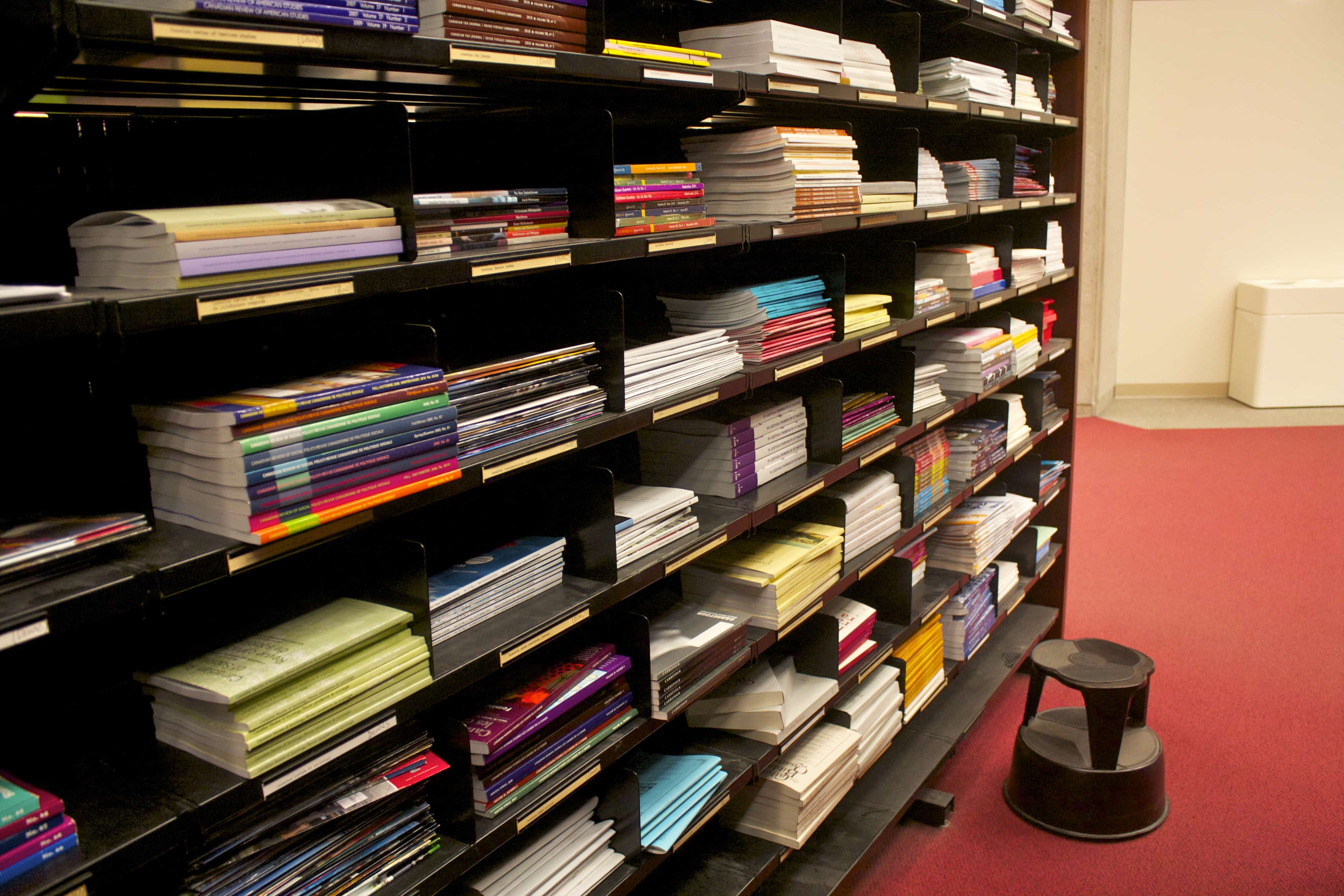U of T has decided not to renew its licence agreement with Access Copyright for another year.
Access Copyright is a corporation that collects fees from organizations, including U of T, in exchange for the right to photocopy print works, and then pays the publishers that hold the rights to those works. Under the current agreement, it charges the university $27.50 per full-time student for these services.
“The University of Toronto is prepared in the coming months to engage in negotiations with Access Copyright to see if the parties can agree on appropriate renewal terms,” said provost Cheryl Misak in a June 6 letter canceling the agreement. The university had until June 30 to indicate whether they intended to renew the agreement. “The university’s position in such negotiations would be to seek a substantially reduced royalty rate.”
Since its adoption last year, the licence agreement has engendered significant controversy. Professor Ariel Katz, of the Faculty of Law, contends that working with Access Copyright at all is pointless.
“The first problem is we are basically paying $2 million a year for nothing,” he argued. “It’s nothing either because we already have licences for [print works photocopied by students and staff], or we don’t really need licences for that because it would fall under fair dealing anyway.”
Professor Katz cited the Supreme Court cases CCH Canadian Limited vs. Law Society of Upper Canada [2004] and Alberta (Education) vs. Access Copyright [2012], in which the court ruled that photocopying excerpts of print works for research or educational purposes constituted fair dealing condoned by copyright law.
“It’s not a big deal to obtain licences directly from copyright owners and publishers, especially when you move to digital, and there is a market and there is competition.” He went on,
“For a large research university such as U of T, giving one single monopoly control over many of its core activities is a very stupid thing to do.”
The UTSU’s president Munib Sajjad largely agreed. “We find that this whole agreement was useless to begin with. Students and any other person at an academic institution are already protected under copyright legislation at the federal level. The law protects us; why is it that we need another subsidiary group charging students unjustly?”
“I hope that the agreement with Access Copyright doesn’t continue at all,” stated Sajjad. “We do not want this copyright agreement to continue, nor with any other organization.”
Roanie Levy, executive director at Access Copyright, explained some of the advatages of the agreement, “The licence allows those at the university to create and use customized paper coursepacks, share and distribute content electronically through course management systems, make day-to-day photocopies, prepare paper handouts to distribute in class, and place materials on reserve in the library for students to photocopy,” she said. “The licence also saves staff, students, and faculty time and expense. They do not need to arrange permission for every book, magazine, newspaper, or journal that is copied or used, for example, in a coursepack.”
“Without an Access Copyright licence,” Levy went on, “permission would need to be arranged each and every time content is being used, for example, in a coursepack. It is a costly and cumbersome process which would narrow and limit the material used at the University of Toronto.”
Provost Misak acknowledged the benefits that the university’s agreement with Access Copyright afforded, including the calculation of separately calculated course pack royalties in one comprehensive fee. She also cited the quickness and efficiency with which instructors were able to access teaching materials without having to seek individual permissions clearances every time. Misak is clear though, that the university’s position has changed significantly since last year.
“However, if there is to be a renewal of the licence there needs to be a clear, demonstrated value to the university over the course of the renewal term — a value that takes into account and gives credit for the expansive interpretation of fair dealing endorsed by the Supreme Court, as well as the amendments to the [Copyright Act of Canada] and other factors.”
Access Copyright has until July 19 to respond as to whether it is willing to enter into negotiations with the university.
If a new agreement is reached, it will come into effect January 1, 2014.


